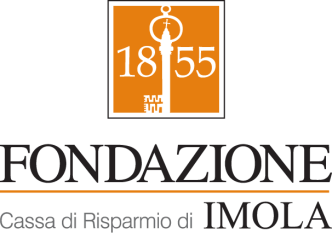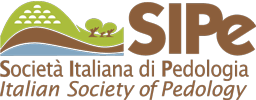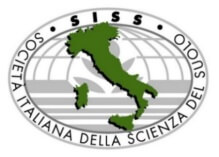Performance analysis of ISO Management System Standards certification Consulting Firms of Pakistan
DOI:
https://doi.org/10.6092/issn.2281-4485/16905Keywords:
ISO Management System Standards certification, Consulting Firms, Government Initiatives, IRCA, PerformanceAbstract
International Standards of Organization (ISO) management system standards certification (IMS) is the most common standard way to benefit the companies that decided to use it. The reason for this research is to analyze the performance of IMS consulting firms in Pakistan and the initiatives taken by the Government of Pakistan (GoP) in the implementation of IMS in the organizations with a moderating role of International Register of Certificated Auditors (IRCA) to maintain quality of products and services in Pakistan. A positivist examination worldview with expressive cross-sectional exploration configuration was chosen to gather essential information from the top-level management, the middle-level, and the low-level employees of ISO-certified firms and team members working in ISO consultancy firms. The data was collected from different cities using an online survey, skype, and telephone because of COVID-19 restrictions. The findings of this study are that there are a total of 31 ISO-certified consulting firms/certification bodies working in Pakistan. Only eight of these are registered with Pakistan National Accreditation Council (PNAC) whereas the remaining are unregistered. The reason identified for the lesser amount of ISO certification in Pakistan is the lack of interest from the GOP. It is because they are not providing any incentive programs to IMS consulting firms.
References
ABA E., BADAR A.M., HAYDEN M. (2016). Impact of ISO 9001 certification on firm's financial operating performance. International Journal of Quality & Reliability Management. 33. 78-89. https://doi.org/10.1108/IJQRM-02-2014-0021.
AMBOS T., SCHLEGELMILCH B. (2009). Managing Knowledge in International Con-sulting Firms. Journal of Knowledge Management. 13. 491-508. https://doi.org/10.1108/13673270910997141.
ARANKI D., SUIFAN T., SWEIS R. (2019). The Relationship between Organizational Culture and Organizational Commitment. Modern Applied Science. 13. 137. https://doi.org/10.5539/mas.v13n4p137.
ARIMURA T., DARNALL N., KATAYAMA H. (2011). Is ISO 14001 a Gateway to More Advanced Voluntary Action? A Case for Green Supply Chain Management. Journal of Environmental Economics and Management. 61. 170-182. https://doi.org/10.2139/ssrn.1368393.
ARMBRÜSTER T. (2004). Rationality and Its Symbols: Signalling Effects and Subjectification in Management Consulting. Journal of Management Studies. 41. 1247-1269. https://doi.org/10.1111/j.1467-6486.2004.00474.x.
BARUCH Y., HOLTOM B.C. (2008). Survey Response Rate Levels and Trends in Organizational Research. Human Relations, 61, 1139-1160. https://doi.org/10.1177/0018726708094863.
BENTO A.L., WHITE L. (2006) Budgeting, Performance Evaluation, and Compensation: A Performance Management Model. Advances in Management Accounting. 15. 51-79. 10. https://doi.org/1016/S1474-7871(06)15003-0.
DERELI T., DURMUŞOĞLU A., DELIBAŞ D., AVLANMAZ N. (2011). An analysis of the papers in total quality management & business excellence from 1995 through 2008. Total Quality Management & Business Excellence, 22(3), 373-386. https://doi.org/10.1080/14783363.2010.532337.
FIEDLER F. E. (1967). The Contingency Theory of Management as a Factor of Acknowledging the Leaders-Managers of Our Time Study Case: The Practice of the Contingency Theory in the Company Avrios. Open Access Library Journal, Vol.8 No.9. https://doi.org/10.4236/jep.2011.24038.
FORNELL C., LARCKER D. F. (1981). Evaluating structural equation models with unobservable variables and measurement error. Journal of Marketing Research, 18(1), 39–50. https://doi.org/10.1177/002224378101800104.
HAIR J. F., SARSTEDT J.R., HOPKINS M.R, L., & KUPPEL W.V. G. (2014). Partial least squares structural equation modelling (PLS-SEM): An emerging tool in business research. European Business Review, 6(2), 106–121. https://doi.org/10.1108/EBR-10-2013-0128.
HUDA, MUHAMMAD & BASBETH, FIRDAUS. (2021). The influence of competency and compensation on performance: The mediating role of loyalty evidence from fact in Indonesia. 24. ISSN 2289-1560.
IQBAL, A.K., AAMIR., AZAM M., ILYAS M. (2017). Impact assessment of ISO certification on the financial performance of firms in Pakistan. 03. 24-45.
IRCA. (2018). About Us. CQI IRCA. https://www.quality.org/knowledge/about-us
IRCA (2020). Volunteer at the CQI. CQI IRCA. https://www.quality.org/knowledge/why-join-irca.
KEMAL, A. R. (2006). Key issues in industrial growth in Pakistan. Lahore Journal of Economics, The Lahore School of Economics, vol. 11(Special E), pages 49-74, September. journl:v:11:y:2006:i:sp:p:49-74.
KHAN, N., ALI, A., TASWEER H., & MIRZA B. (2022). Identification And Synthesis Of Business Performance Improvement Factors Framework Of ISO Management System Standards Certified Companies. The Journal of Positive Psychology. 6. 6583-6601. ISSN: 2717-7564.
KIPPING M., WRIGHT C. (2012). Consultants In Context: Global Dominance, Societal Effect, And The Capitalist System. https://doi.org/10.1093/oxfordhb/9780199235049.013.0008.
KUBR, M. (2002). Management Consulting: A Guide to the Profession. International Labor Office, Washington. Available from: ProQuest E-book Central. [Retrieved 2020-03-12].
LAMB, B., HOFER, C., Henry H.W. (1982), "A Look at the Strategic Planning Consulting Firms", Journal of Business Strategy, Vol. 3 No. 2, pp. 83-86. ISSN: 0275-6668. https://doi.org/10.1108/eb038971.
LORSCH, J.W., MATHIAS P.F. (1987). “When professionals have to manage”, Harvard Business Review, 65 (4), 78-83. https://doi.org/10.1177/104225879602000402.
MALIK, S., YEZHUANG T. (2006). ISO Certification: The Trend and Scope from Pakistani Industry's Perspective. 766 - 771. https://doi.org/10.1109/ICMIT.2006.262324.
McADAM, R., CANNING N. (2001). ISO in the service sector: Perceptions of small professional firms. Managing Service Quality. 11. 80-92. 10. https://doi.org/1108/09604520110387202.
PUTRA A., NOVITASARI D., ISKANDAR J., HUTAGALUNG D., SUROSO P, AGUS., ASBARI M. (2020). International Journal of Science and Management Studies (IJSMS). Examine Relationship of Soft Skills, Hard Skills, Innovation and Performance: the Mediation Effect of Organizational Learning. International Journal of Science and Management Studies (IJSMS). 3. 27-43. https://doi.org/10.51386/25815946/ijsms-v3i3p104.
QUAZI H.A., PADIBJO, S.R. (1998), “A journey towards total quality management through ISO 9000 certification. A study on small and medium-sized enterprises in Singapore”', International Journal of Quality & Reliability Management, 15 (5), 364-71. ISSN 2347 – 4289.
RICHTER A & DICKMANN M., GRAUBNER M. (2008). Human resource management in consulting firms. Personnel Review. 37. https://doi.org/10.1108/00483480810850533.
SAUNDERS M, PHILIP L., ADRIAN T. (2009). Research Method for Business Students. Essex-England: Pearson Education Ltd. ISBN: 978-1-292-20878-7
SCOTT M.C. (1998). The Intellect Industry: Profiting and Learning from Professional Service Firms, John Wiley & Sons, Chichester.
SHAFIQ M., ABID K., JALIL F. (2014). Perception of managers about the relationship of ISO 9000 certification with business results. Journal of Quality and Technology Management, 10(1), 93-104.
SIMMONS, B.L., WHITE M.A. (1999). The relationship between ISO 9000 and business performance: Does registration really matter? Journal of Managerial Issues. 11. 330-343.
SINGH, P., MANSOUR-NAHRA P. (2006). ISO 9000 in the public sector: A successful case from Australia. The TQM Magazine. 18. 131-142. https://doi.org/10.1108/09544780610647856.
TEECE, D. (2003). Expert talent and the design of professional firms. Industrial and Corporate Change. 12. 895-916. https://doi.org/10.1093/icc/12.4.895.
WILLAR D., COFFEY V., TRIGUNARSYAH, B. (2015). Examining the Implementation of ISO 9001 in Indonesian Construction Companies. TQM Journal. 27. 94 - 107. https://doi.org/10.1108/TQM-08-2012-0060.
WISNER, J., CORNEY W. (2001). Comparing practices for capturing bank customer feedback - Internet versus traditional banking. Benchmarking: An International Journal. 8. 240-250. https://doi.org/10.1108/14635770110396647.
Downloads
Published
How to Cite
Issue
Section
License
Copyright (c) 2023 Muhammad Bilal Mirza, Nawar Khan

This work is licensed under a Creative Commons Attribution 4.0 International License.









